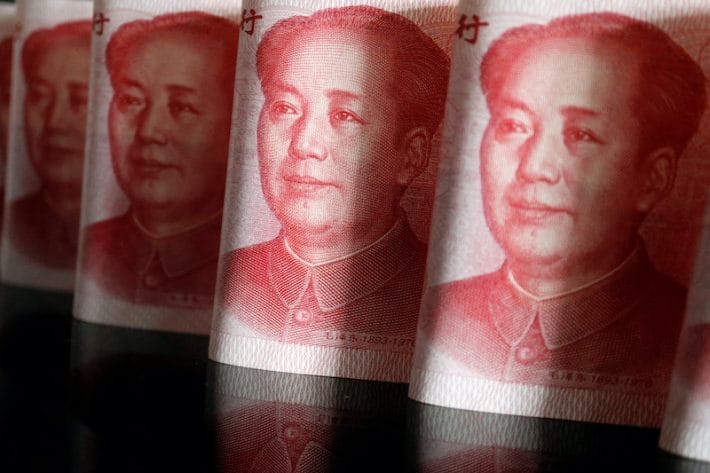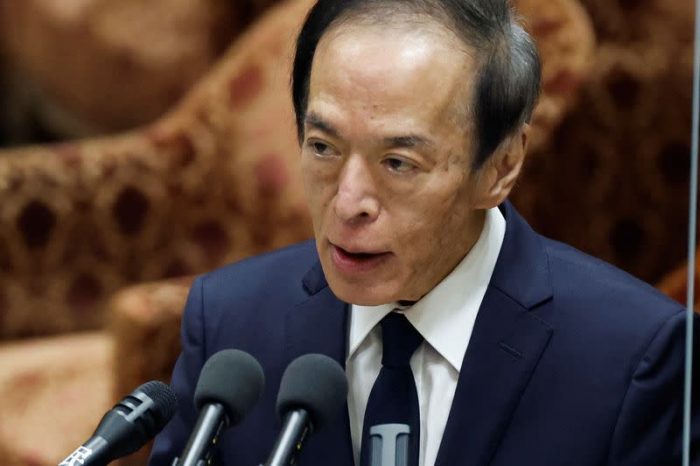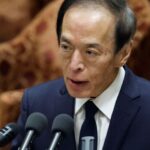China's top financial policymakers have been discussing allowing the yuan to weaken next year as they prepare for higher trade tariffs when Donald Trump takes office as U.S. president next month.
Trump vows higher tariffs a major concern for China, policymakers aware The country will need bigger economic stimulus to deal with trade blowPeople familiar with the matter told Reuters.
Trump said he plans to impose a general import tariff of 10% on U.S. imports and a 60% tariff on Chinese imports.
See also: China takes on more debt in response to Trump tariffs
Letting the yuan weaken could make Chinese exports less expensive, weakening the impact of tariffs and creating easier monetary conditions in mainland China.
Reuters spoke to three people with knowledge of discussions about devaluing the yuan, but they spoke on condition of anonymity because they were not authorized to speak publicly about the matter.
The People's Bank of China and the State Council Information Office, which handle government media inquiries, did not immediately respond to Reuters' requests for comment.
Flexible RMB policy
Sources said allowing the yuan to depreciate next year would be a departure from the usual practice of maintaining exchange rate stability.
The tightly managed yuan is allowed to fluctuate 2% above or below the daily central parity rate set by the central bank. Policy comments from top officials often include a commitment to maintaining the yuan's stability.
Another person familiar with the matter said that while the central bank is unlikely to say it will no longer support the yuan's exchange rate, it will emphasize giving the market greater power in determining the value of the yuan.
At a meeting of the Politburo, the party's decision-making body, held this week, China pledged to adopt “moderately loose” monetary policy next year, easing its policy stance for the first time in about 14 years.
The comments did not mention the need for “basically stable renminbi,” which was last mentioned in July but not mentioned in the September report.
This year, yuan policy figured prominently in financial analysts' reports and other think tank discussions.
The yuan could fall to 7.5 against the dollar
In a paper published last week by the China Finance 40 Forum Institute, a well-known think tank, analysts suggested that China should temporarily shift the renminbi's peg to the dollar to a basket of non-dollar currencies, particularly the euro. flexible.
The People's Bank of China has considered the possibility that the yuan could fall to $7.5 against the dollar to offset any trade shock, a third source with knowledge of the central bank's thinking told Reuters.
This is a depreciation of approximately 3.5% from current levels of around 7.25.
During Trump’s first term as president, the yuan depreciated more than 12% against the dollar during a series of tit-for-tat tariff announcements between March 2018 and May 2020.
A weaker yuan could help the world's second-largest economy achieve its projected challenging 5% economic growth target and ease deflationary pressures by boosting export earnings and raising prices for imported goods.
Analysts on average predict that the yuan will fall to 7.37 against the dollar by the end of next year. The yuan has fallen nearly 4% against the U.S. dollar since late September as investors prepare for a Trump victory.
The central bank has used state-owned banks to buy and sell the yuan in the past to curb volatility and disorderly fluctuations in the yuan.
- Reuters Additional editing by Jim Pollard
See also:
Trump's warning of 100% tariffs on BRICS rattles Asian currencies
Trump outlines plan to impose new tariffs on Canada, Mexico and China
Outflow pressure sends yuan to seven-month low
Ruble plunges after U.S. sanctions GPB, dozens of Russian banks
US says China provided deadly aid to Russia in Ukraine war – FT
China’s yuan overtakes yen in global payments rankings – FT
RMB surpasses euro to become second largest trading currency
Yuan falls to lowest level in 16 years as economic recovery weakens














